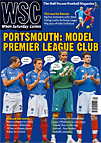 Tom Hunt examines the problems in the first year of Europe's revamped club competition – and how UEFA aren't really helping
Tom Hunt examines the problems in the first year of Europe's revamped club competition – and how UEFA aren't really helping
When David Moyes reflects on Everton’s inaugural Europa League campaign, it will not only be the feeble 3-0 surrender at Sporting Lisbon that gets his hackles rising. The curious case of the Blues’ 5.45pm kick-off in the first leg of their round of 32 tie against Sporting on February 16 will have left a sour aftertaste too. Moyes was unhappy that Everton were forced into an unusual tea-time start and went so far as to accuse UEFA of “diminishing” their own competition. Not the best publicity for a tournament struggling to convince people of its worth but Moyes, who had consistently fielded his strongest team in it, warranted some sympathy.
The problem arose when Everton and Liverpool were both handed first legs at home in the last 32. Liverpool – placed higher in last season’s Premier League – took the Thursday-night slot, leaving their neighbours to find another date. With the previous week impossible because of a Premier League assignment with Chelsea, Everton ended up playing on the Tuesday – with an enforced early kick-off to avoid clashing with Champions League broadcasts that same night.
UEFA’s contracts with its broadcasters stipulate it will not schedule any matches in its other competitions at the same time as Champions League fixtures. There is nothing new about TV dictating kick-off times and supporters suffering for this, yet this decision meant a reduced 28,131 crowd, a diluted atmosphere and an estimated £100,000 loss for Everton.
“We will be kicking off when people are still coming home from work,” complained Moyes, whose club were originally asked to play at 5pm. “[UEFA] have been really poor in evaluating a competition we want to do well in. I don’t know why they could not have ruled that one of these sides would play the first leg at home and the other would play away.” The truly depressing aspect here was that, as Moyes suggested, it underlined the Europa League’s second-class status. Forget the obvious inconvenience to the club participating – all that mattered was ensuring “maximum visibility” for the Champions League.
Those who remember famous nights for British clubs in the UEFA Cup and Cup-Winners Cup lament the demise of those competitions in the face of the Champions League’s ever-tighter grip on the spotlight. UEFA, to their credit, sought to do something to restore some lustre to the UEFA Cup but whether rebranding it as the Europa League – complete with sponsor, matchball and anthem (“the perfect soundtrack to an amazing show” according to its composer) – was the right solution remains to be seen, even if the improved round of 32 attendances were an encouraging sign.
UEFA president Michel Platini said last year that the altered format – with centralised sponsorship from the knockout stage – would “increase the financial rewards for clubs”, yet these are still chicken feed compared with the riches on offer in the Champions League. While Fulham’s journey to the Europa League’s last 16 brought them £1.65 million in prize money, Barcelona, with an identical group-stage record in the Champions League, earned £12m for their progress in the elite competition.
The Times’ Patrick Barclay suggested last spring that UEFA’s best option would have been to return the UEFA Cup to a traditional knockout format, ensuring it at least a distinctive character – rather than creating a “mini-me” version of the Champions League (but with more matches for a fraction of the spoils). No clubs would choose that option when they can have three guaranteed home group-stage games but a more manageable restorative step – to close the door to the eight Champions League dropouts who enter the tournament each February – was never seriously considered, even though this provides surely the biggest dent in the competition’s credibility.
So Liverpool have been parachuted in and will aim to become the fifth club since 2000 to win a race they only entered halfway through. A more romantic denouement might yet involve Fulham, who Roy Hodgson steered to the last 16 via their impressive dethroning of Shakhtar Donetsk. Hodgson described that success as a highlight of his long career. “I wouldn’t rule out that at the end of my coaching days I will name this match as the best in my career,” he said, in marked contrast with his earlier ambivalence towards the competition.
“Going through in the Europa League isn’t of vital importance,” he said pragmatically before naming Brede Hangeland, Clint Dempsey and Damien Duff as substitutes for the must-win final group game at Basel. A whiff of glory has changed Hodgson’s tune and, who knows, if Fulham’s fairytale continues against Juventus, people might even stop calling it the Europa Cup.
From WSC 278 April 2010